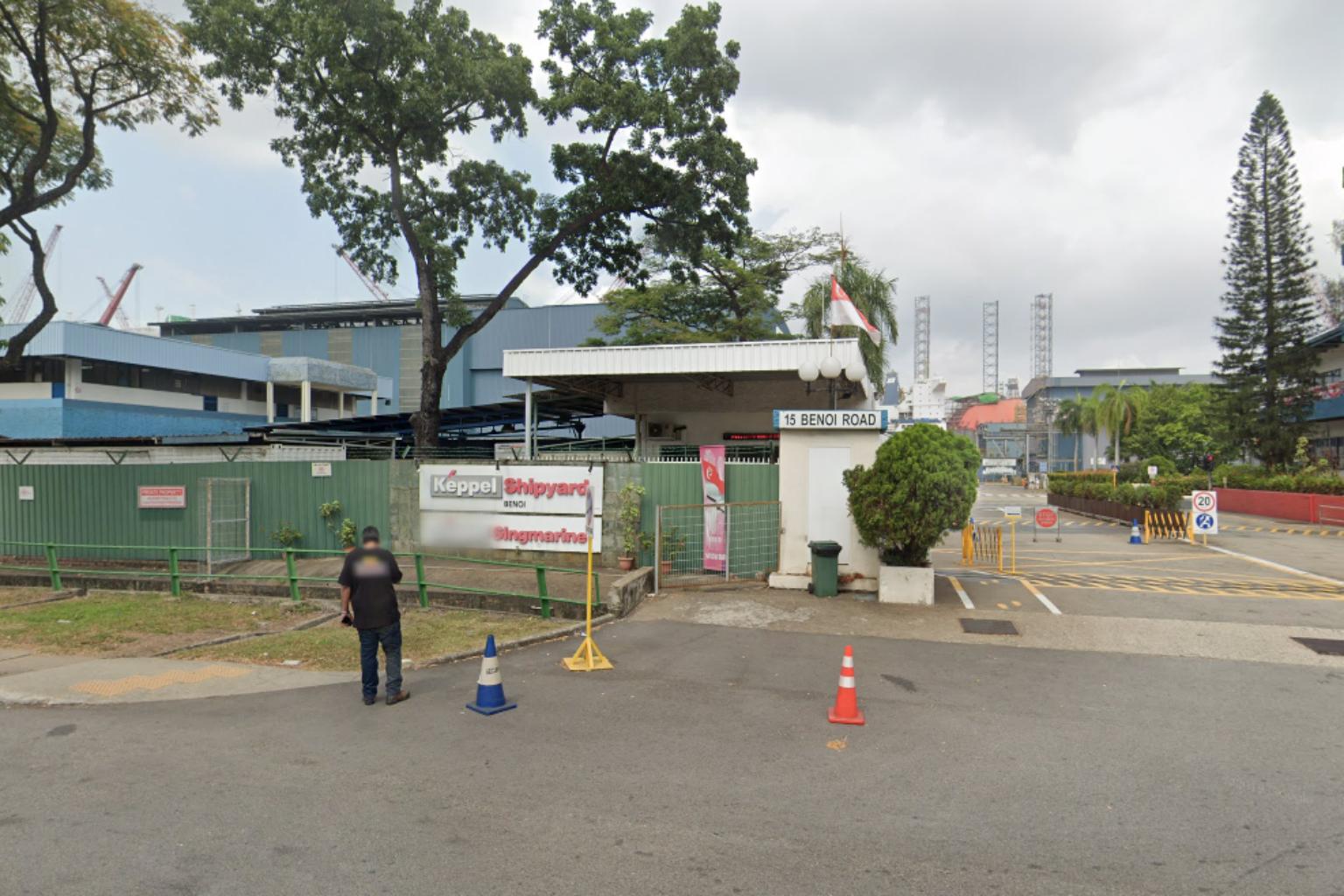Alpine Engineering and Keppel Shipyard fined over worker who suffocated to death in tube
Sign up now: Get ST's newsletters delivered to your inbox

Mr Perumal Azhaguraja suffocated after he descended into a tube at Keppel Shipyard's premises in Benoi Road in 2014.
PHOTO: SCREENGRAB FROM GOOGLE MAPS
Follow topic:
SINGAPORE - A marine trades worker, who had not received proper training, died after he descended into a tube at Keppel Shipyard's premises in Benoi Road in 2014 and suffocated due to the presence of argon gas impairing the oxygen level there.
Mr Perumal Azhaguraja, who worked for Alpine Engineering Services, had used a rope to descend into the tube, which was 90cm wide and 30m deep, to retrieve pieces of foam at around 11am on May 19 that year.
One of his colleagues, Mr Renganathan Chandrasekaran, who noticed that Mr Perumal had gone silent about five minutes later, entered the tube to check.
He found Mr Perumal unconscious at a depth of 22m and both men were then pulled up.
They were taken to the National University Hospital, where Mr Perumal died at around 1pm. Mr Renganathan did not sustain any injuries.
Alpine Engineering was fined $190,000, while Keppel Shipyard was fined $70,000 on Thursday (Sept 24).
The firms had earlier pleaded guilty to an offence under the Workplace Safety and Health Act.
Ministry of Manpower prosecutor Amos Tan stated in court documents that Mr Perumal's job duties included performing rope access works as well as grinding and painting jobs within the shipyard.
Shortly before the tragedy, his supervisor had asked him to remove some pieces of foam from the tube. Mr Perumal did not carry a gas detector when he entered the tube.
Investigations revealed that some tubes in the area were installed using tungsten inert gas welding, and tungsten electrode was used to produce the weld for the joints.
Mr Tan said: "In order to ensure the finishing of the joints was of the required quality, the welding had to be carried out in an environment of argon gas.
"(Foam was) then installed in the (tube) to create a gap where argon gas would be pumped in to create an argon gas environment for the welding to be carried out."
The court heard that about 400 litres of argon gas had been pumped into the space between some pieces of foam in the tube to prepare for the welding works before the accident.
When Mr Perumal later entered the tube, the argon gas displaced the oxygen around him, leading to asphyxiation.
Mr Tan said that Alpine Engineering had failed to ensure that its employees were adequately trained to work within confined spaces. Some of them also did not attend a "gas detector carrier" course.
Alpine Engineering also did not have the necessary rescue equipment, such as tripod hoist system that could be used to retrieve a worker from a confined space.
"Had the tripod hoist system been provided, (Mr Perumal) could have been pulled out from the (tube) quickly," said Mr Tan.
Keppel Shipyard, on its part, failed to ensure that Alpine Engineering's workers had the necessary expertise to carry out works in a confined space.
It had also failed to ensure that the workers working in the tubes had attended the "gas detector carrier" course.
In sentencing, District Judge Adam Nakhoda called the breach of regulations by Alpine Engineering "systemic", and said: "The presence of argon gas would have to be a foreseeable risk... It would be vital for (Mr Perumal) to have a gas detector and know how to use it. This is especially so as argon is both colourless and odourless."

